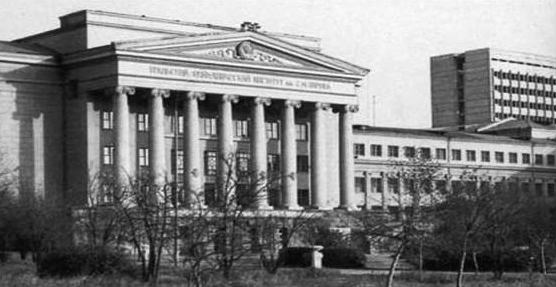IRIT-RTF
вторник 1 июля 2025, 13:50
 Photo by the library archive |
____ |
In the first years of the establishment of Soviet power, training of specialists in the field of radio engineering was carried out only in Moscow, Leningrad and Nizhny Novgorod, but in the difficult post-war times there was an urgent need for a large number of radio engineering specialists. In connection with this, on February 25, 1952, the radio engineering faculty was opened at the Ural Polytechnic Institute. The first dean was Valentin Georgiyevich Stepanov, who did a great job of organizing the faculty. Initially, three departments were organized at the faculty: "Theory of Automatic Processes", "Automatic Control Equipment", "Theoretical Foundations of Radio Engineering". Already in 1953-1954 there were 560 students, 7 departments and 24 teachers at the faculty. The first 15 students transferred in 1952 from the power faculty graduated from the radio faculty in the specialty "Automation and Telemechanics". Every year the number of students and qualified teachers grew, the number of departments increased, new specialties were opened. In 1970, the Radio Engineering Faculty completely moved to a new building – the 6th academic building of UPI. In 1985, the research laboratory of electronic radio communications was opened at the department of radio engineering systems – the first independent scientific division of this type at the RTF. The subject of the laboratory’s research is information security in communication systems.
The name of the faculty also changed. In 2005, the faculty became an institute, and in 2011, the Radio Engineering Institute was renamed into the Institute of Radioelectronics and Information Technologies – RTF. In 2019, IRIT-RTF became the first institute in the city to implement its bachelor's degree programs according to individual educational trajectories. Today, a modern radio operator is a versatile, well-trained specialist who can work in the field of radio electronics, communication systems and IT technologies.
You can learn more about the institute from the books "Research Schools of the Ural State Technical University. History and Modernity", "USTU-UPI: Essays on History", "To You, RTF Graduate: Historical Essay on Radiotechnical Faculty for Graduates: 50 RTF" and others. They can be taken from the Social & Economic Study Materials circulation desk (19 Mira Street, Room B-304) of the UrFU Library, having checked the availability in the Library Electronic Catalog, or use the full-text UrFU Electronic Repository.
Author: Oksana Grigoryeva
Translator: Angelina Cherenkova |



